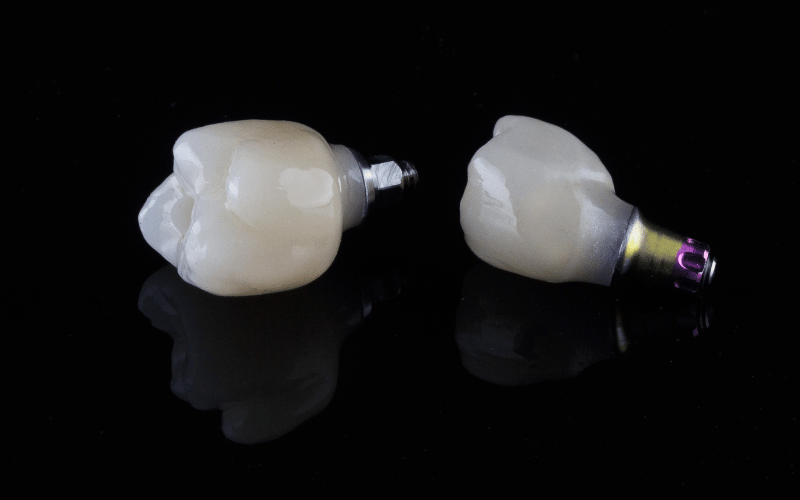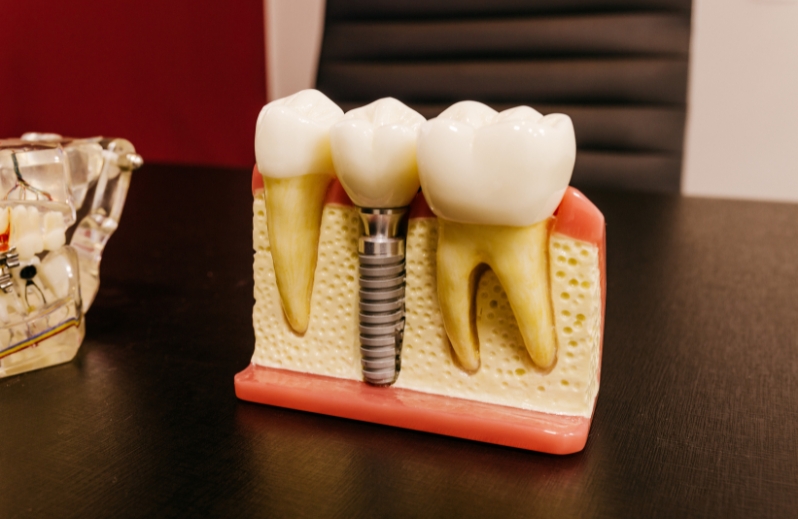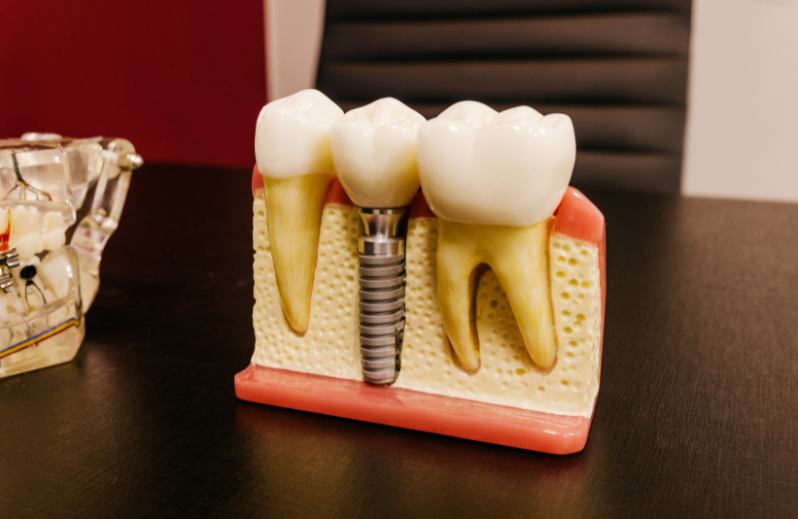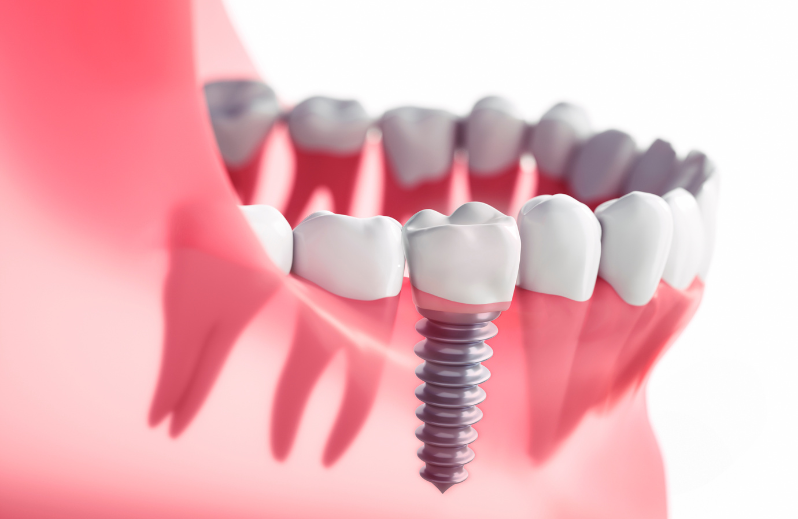


Zirconia implants are an advanced dental solution replacing traditional titanium implants. Composed of biocompatible zirconium dioxide, these implants offer a metal-free alternative, minimizing potential allergic reactions.
Known for their durability, aesthetics, and ability to integrate with surrounding tissues, zirconia implants are gaining popularity for tooth replacement.
Their natural color and clarity enhance visual appeal, while the absence of metal eliminates concerns related to corrosion or temperature sensitivity.
Zirconia implants are particularly favored by individuals seeking a holistic and esthetically pleasing option for dental restoration, providing a reliable alternative for those with metal sensitivities or aesthetic preferences.
What Sets Zirconia Implants Apart from Traditional Implants?
Zirconia implants distinguish themselves from traditional titanium counterparts through their material composition and unique qualities. Composed of zirconium dioxide, a ceramic-like substance, they offer a metal-free alternative, minimizing allergic reactions and providing excellent biocompatibility.
These implants excel in aesthetics due to their natural color and clarity, blending seamlessly with surrounding teeth. Known for durability and tissue integration, they reduce concerns about corrosion and temperature sensitivity associated with metal implants.
This makes zirconia implants an attractive choice for individuals seeking a holistic, aesthetically pleasing, and biocompatible solution for dental restoration, especially those with metal sensitivities or specific aesthetic preferences.
Benefits of Choosing Zirconia Implants
1. Biocompatibility: Zirconia implants are biocompatible, reducing the risk of allergic reactions and inflammation. This makes them ideal for individuals with metal sensitivities or allergies, ensuring a harmonious integration with the body’s natural tissues.
2. Aesthetics: These implants closely mimic the appearance of natural teeth thanks to their natural color and clarity. This aesthetic quality makes them a popular choice for those seeking a dental restoration option that seamlessly blends with the surrounding teeth, enhancing the overall smile appearance.
3. Durability: Zirconia implants are known for their strength and durability, providing a long-lasting solution for tooth replacement. They can withstand chewing and biting forces, offering stability and reliability comparable to traditional titanium implants.
4. Corrosion Resistance: Unlike metal implants, zirconia is corrosion-resistant. This characteristic ensures the longevity of the implant and eliminates concerns about rust or corrosion over time, contributing to the overall durability of the restoration.
5. Holistic and Metal-Free Option: Zirconia implants offer a metal-free alternative for those who prefer a holistic approach to dental care. With no metal components, these implants address concerns related to metal toxicity and provide a comprehensive solution for individuals who prioritize a metal-free dental restoration.
Potential Drawbacks and Risks
1. Fracture Risk: Zirconia implants, although durable, may have a higher risk of fracture compared to traditional titanium ones, especially in areas with high biting forces. This could lead to implant failure and the need for replacement.
2. Limited Clinical Long-Term Data: While zirconia implants have shown promising results, the long-term clinical data still needs to be improved compared to traditional titanium implants. This can pose a challenge in thoroughly assessing the longevity and performance over extended periods.
3. Complexity of Placement: Due to their hardness, Zirconia implants may require more precise surgical techniques during placement. This can make the surgical procedure more complex and may necessitate a higher level of skill and experience from the dental practitioner.
4. Cost: Zirconia implants are more expensive than traditional titanium ones. The higher cost can be a potential drawback for individuals with budget constraints or those seeking more economical dental restoration options.
5. Limited Compatibility with Two-Stage Surgery: Zirconia implants may not be suitable for two-stage surgical procedures, where the implant is initially placed beneath the gum line and later exposed in a second surgery. This limitation can impact the treatment options available to specific patients and may influence the choice of implant material.
Cost Comparison to Traditional Implants
Zirconia implants generally incur higher costs compared to traditional titanium implants. The increased expense is primarily attributed to the production of zirconia, a durable and aesthetically pleasing ceramic material.
While zirconia implants offer benefits like biocompatibility and improved aesthetics, the sophisticated manufacturing process and limited availability contribute to their elevated price. Traditional titanium implants, more widely used and economically produced, remain cost-effective.
However, when deciding on the most suitable dental restoration option, patients must weigh the financial considerations against the specific advantages offered by zirconia implants, such as being a metal-free alternative and providing enhanced aesthetics.
Tips For Maintenance and Long-Term Care.
1. Oral Hygiene Practices: Maintain rigorous oral hygiene by brushing your teeth at least twice daily with a soft-bristled toothbrush and fluoride toothpaste. Floss daily to remove plaque and debris from between teeth and around the implant. Good oral hygiene helps prevent gum disease and ensures the longevity of the implant.
2. Regular Dental Check-ups: Schedule regular dental check-ups and professional cleanings. Oral Surgeons can monitor the implant’s health, identify any potential issues early on, and provide professional cleanings to prevent the buildup of plaque and tartar around the implant.
3. Avoidance of Harmful Habits: Refrain from habits like teeth grinding (bruxism) and chewing on complex objects, contributing to implant stress and potential damage. Consider using a night guard if you grind your teeth during sleep to protect natural teeth and implants.
4. Healthy Lifestyle Choices: Adopt a healthy lifestyle, as factors like smoking can negatively impact the success of dental implants. Smoking can contribute to inflammation and hinder the healing process. Maintaining overall health supports the success of the implant and reduces the risk of complications.
5. Awareness of Changes: Be vigilant about changes in the implant area, such as swelling, pain, or mobility. If you notice any abnormalities, consult your oral surgeon promptly. Early detection and intervention often prevent more severe issues and contribute to the long-term success of the implant.
In conclusion, Zirconia Implants offer a compelling alternative to traditional options, providing durability, aesthetics, and biocompatibility. For residents seeking excellence in dental care, consider Beverly Hills Oral and Facial Surgeon, a trusted provider of Zirconia Implants in Beverly Hills.
Their expertise ensures precise placement and optimal long-term results. Elevate your smile with the natural appeal of Zirconia Implants at Beverly Hills Oral and Facial Surgeon – where innovation meets precision.
Schedule your consultation today for a radiant, metal-free smile that reflects the pinnacle of dental sophistication. Your journey to lasting oral health begins here.




